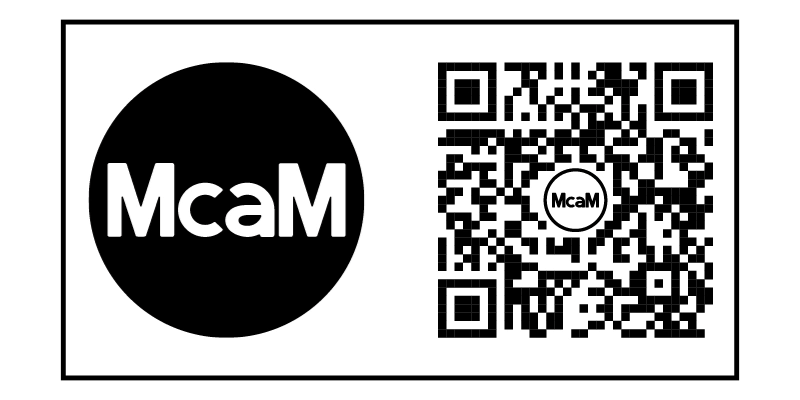McaM冬眠研究所丨回到你温暖的卧室,让精神与Dr. Kanta Dihal交谈
![]() {{newsData.publisher_name}}
{{newsData.update_time}}
浏览:{{newsData.view_count}}
{{newsData.publisher_name}}
{{newsData.update_time}}
浏览:{{newsData.view_count}}
来源 | {{newsData.source}} 作者 | {{newsData.author}}
冬眠研究所是展览《脑洞:人工智能与艺术》(Mind the Deep: Artificial Intelligence and Artistic Creation)特别策划的冬日线上项目。
我们将在冬眠的时刻相遇,在春天的初始解散
参与者不必从自己温暖的卧室离开,就能参与精神生产
放松肉身,锻炼精神
在深冬之时,我们将会在各种网络媒介、用四个议题展开不定期的讨论
❄❄❄
它们分别是:
01/迷人与危险的叙事 AI Narrative
02/诗意运算 Poetic Computation
03/技术圈与创伤 Technosphere & Trauma
04/旧前线 The Old Frontier
💤💤💤
1月18日,我们将开始第一场讨论——迷人与危险的叙事 AI Narrative。

扫描上方二维码报名
研究所参与者人数:15人
时间:2020年1月-2月
费用:免费
使用媒介:直播、微信群等
参与者要求:
a. 科技与艺术研究者、爱好者
b. 具备较强的英语交流、写作能力
c. 我们期待你在“冬眠”后提交一份从四个话题出发,最好也结合自身研究的中文小报告
报名至2020年1月13日结束,
我们会在报名的观众中选出15人,
并在两个工作日之内告知。
🌕🌖🌗🌘🌑🌒🌓🌔🌕
1963年, Allen Newell与Herbert A. Simon曾提出对于人与机器而言,符号操作都处于核心位置,今天我们少有再这样认为,但符号操作及其所暗喻的概念世界,仍然令许多人着迷。另一方面,Noam Chomsky在2011年的“大脑,心智与机器”(Minds, Brains, Machines)会议上,执着地提出现今的AI模型大都还是“数据的胜利”,而非人脑的“认知”,这一底层缺憾也是通向通用人工智能的巨大壁垒。在人工智能的话题领域,“认知”依然是一个迷人而危险的区域。而从“认知”出发的AI叙事研究,也成为许多学者关注的话题。
那我们邀请了谁呢?
Kanta Dihal
她是谁?
她对AI有何高见?
欢迎加入“冬眠研究所”一探究竟

坎塔·迪哈尔(Kanta Dihal)
坎塔·迪哈尔,是剑桥大学勒沃胡姆未来智能中心的博士后研究员。她是全球人工智能叙事项目的首席研究员,该项目探索了公众对人工智能的跨文化理解,人工智能是由虚构和非虚构的叙事构成的。坎塔的作品涉及科学传播、文学和科学以及科幻小说等领域。她是即将出版的《人工智能叙述:关于智能机器的想象力思考史》(AI Narratives: A History of Imaginative Thinking About Intelligent Machines,牛津大学出版社,2020年)的联合编辑,目前正与斯蒂芬·卡夫博士合作撰写《人工智能:神话》(AI: A Mythology)专著。
Dr Kanta Dihal is a postdoctoral researcher at the Leverhulme Centre for the Future of Intelligence, University of Cambridge. She is the Principal Investigator on the Global AI Narratives project, which explores intercultural public understanding of artificial intelligence as constructed by fictional and nonfictional narratives. Kanta's work intersects the fields of science communication, literature and science, and science fiction. She is co-editor of the forthcoming collection AI Narratives: A History of Imaginative Thinking About Intelligent Machines (Oxford University Press, 2020) and is currently working with Dr Stephen Cave on the monograph AI: A Mythology.
很少有领域比文学对人工智能(AI)的影响更大。尽管“人工智能”这个词直到1955年才被发明出来,但在那之前的几百年甚至几千年里,人们一直在想象建造智能机器的可能性。对于智能机器的前景,我们似乎很难保持中立;它们把我们激发到了想象力的极端。此次的“冬眠研究所”之中,坎塔·迪哈尔将会解释原因:我们对人工智能的希望需要把人类的特质投射到机器上。这就使这些想象中的创造具有内在的不可预测性:为实现我们赋予的期待,机器恰恰需要具备一种不实现这些期待的自主性。她将介绍从Homer到HAL等一系列想象中的智能机器的悠久历史,解释为什么人工智能在整个历史中都俘获了我们的想象力。
There are few fields, if any, in which literature has had a greater influence on science than in artificial intelligence (AI). Although the term ‘artificial intelligence’ wasn’t coined until 1955, people have been imagining the possibility of building intelligent machines for centuries – even millennia – before then. It seems difficult to be neutral about the prospect of intelligent machines; they provoke us to imaginative extremes. This lecture aims to explain why: the hopes we have for AI require the projection of humanlike qualities onto machines. This makes these imagined creations inherently unpredictable: the qualities they would need in order to fulfil our hopes are those that grant them the autonomy to choose not to fulfil them. I will introduce the long history of imagining intelligent machines from Homer to HAL and beyond, explaining why AI has captured our imagination throughout history.




脑洞 —— 人工智能与艺术
2019.11.07-2020.02.09
每周二至周日10:00-18:00
策展人:邱志杰、龙星如
主办方:明园集团、McaM 明当代美术馆
中央美术学院视觉艺术高精尖中心数据艺术
与人工智能实验室
联合主办:上海科技大学创意与艺术学院
出品人:李松坚、凌菲菲

{{flexible[0].text}}

 {{newsData.good_count}}
{{newsData.good_count}}

 {{newsData.transfer_count}}
{{newsData.transfer_count}}















 分享
分享